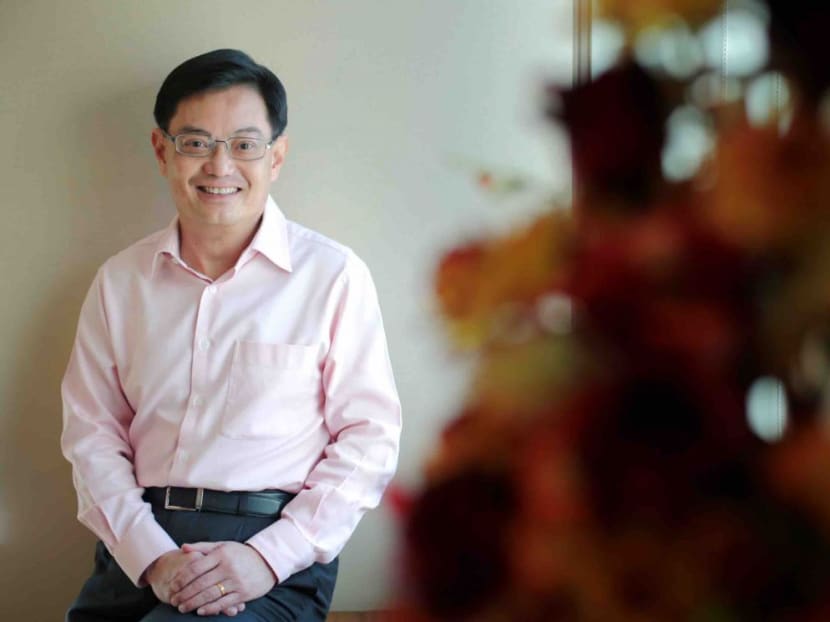Budget is more than giving ‘goodies’, raising taxes: Heng Swee Keat
SINGAPORE — With recent talk that taxes could be raised in future, Finance Minister Heng Swee Keat said on Monday (Jan 22) that the upcoming Budget is not about taxes or handing out “goodies”.
SINGAPORE — With recent talk that taxes could be raised in future, Finance Minister Heng Swee Keat said on Monday (Jan 22) that the upcoming Budget is not about taxes or handing out “goodies”.
It is about making a long-term plan to allocate resources for the country’s future needs, and there are “important questions” to ask, such as why revenue is collected, and how and why is it spent. “And are we planning for the long haul? Are we planning for a better Singapore? That is the issue I think we ought to concentrate on,” he said.
Mr Heng was giving a speech at the annual Singapore Perspectives Conference 2018, organised by the Institute of Policy Studies, and he acknowledged the anxiety over the Budget statement to be announced on Feb 19, but pointed out that it “cannot just be about taxes, revenue and expenditure”.
Since government leaders spoke last year that raising taxes is a way to support the country’s future spending, there have been discussions about imposing a tax on e-commerce, or to raise GST from 7 per cent to 9 per cent.
At the conference on Monday, Mr Heng presented some figures on the country’s spending, which had more than doubled from S$33 billion in the financial year (FY) 2007 to S$71 billion in FY2016.
Social spending, for instance, had gone up by 5 per cent, while spending on infrastructure had risen to 7 per cent during that period.
The country’s reserves has been a major source of revenue, and drawing from this pool has more than tripled from 5.6 per cent in FY2007 to 17.3 per cent in FY2016.
Contribution from corporate income tax has gone down from 21.6 per cent of the revenue in FY2007 to 16.2 per cent in FY2016, while the contribution from GST has also dipped over that period from 14.4 per cent to 13.1 per cent.
“If we hadn’t (used) the reserves, what it means is that your personal income tax, GST, corporate income tax could have doubled — and all of these are not terribly great solutions,” Mr Heng said.
AN EFFICIENT, FAIR TAX SYSTEM
The public has traditionally viewed the Budget as a time when the Government would give out “goodies” in the form of financial handouts, subsidies and rebates to buffer the rising costs of living.
During the dialogue session at the conference, Mr Heng reiterated his point about long-term strategic planning, saying that if people viewed the Budget announcements as whether taxes would increase or decrease and whether goodies would be given out, they would be “missing the point”.
When it comes to putting in place a taxation regime, Mr Heng said that the Government takes into account two key factors: Efficiency and equity. Efficiency means looking at the best way to collect taxes to avoid distortion that could lead to misallocation of resources, or taking away the incentive from people to work, while equity involves being fair to various groups in society.
Inevitably, there will be trade-offs in the short and long haul when a tax system is in place. Imposing taxes might appear “unfair” in the short run, but an efficient tax system could turn out to be more equitable in the long run “because the entire pie grows”, he added.
When asked about the political pressure that comes with having to impose taxes, Mr Heng replied that it is important for Singaporeans to understand the fundamentals of the Budget.
“It is easy for any single group to say, ‘Please give me more’. But ‘giving you more’ means either I take from somebody or I give less to somebody. The book has to balance,” he said.
Noting that it is important to do “the right thing” with regard to the Budget, to ensure Singapore has a good future, Mr Heng added: “It is not about one election or two elections, or pressure from one point or another point, but really about our future.”
Touching on the topic of the country’s ageing population, Mr Heng said that if the “stresses and strains” of a silver society are great, it could also lead to a situation where there may be protectionist measures.
In Singapore, an ageing population will undeniably have a sweeping effect on areas such as transport, healthcare and the labour force, which means it has to start considering, for example, if there will be enough manpower in healthcare, rethinking the concept of retirement, and how jobs can be redesigned to enable elders to contribute to the economy.
Since the various challenges are inter-related, the various ministries and organisations — including those from the social and private sectors — should collaborate to provide solutions.
It is hard to predict societal changes with accuracy, Mr Heng said. “We can be sure that the rate of change will be faster, not just for us but everyone else around the world. It means it can be more unsettling. So, all the more, it is critical that we stay united together to tackle these changes.”







